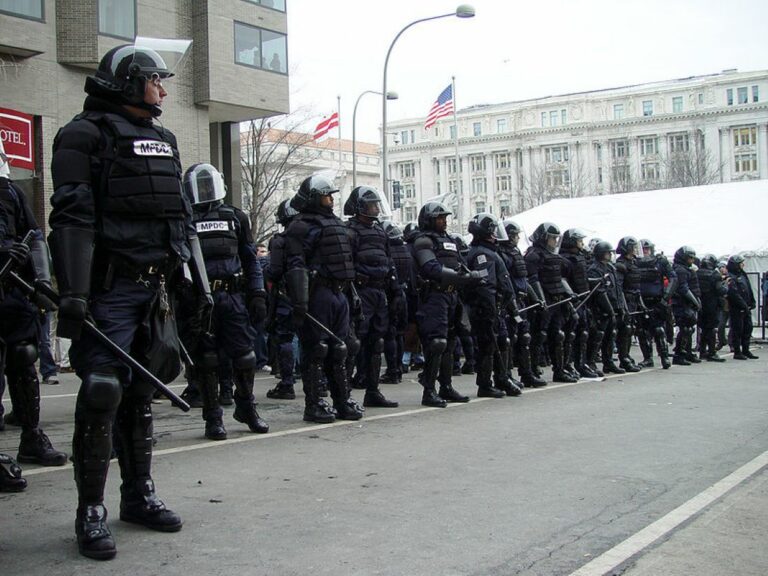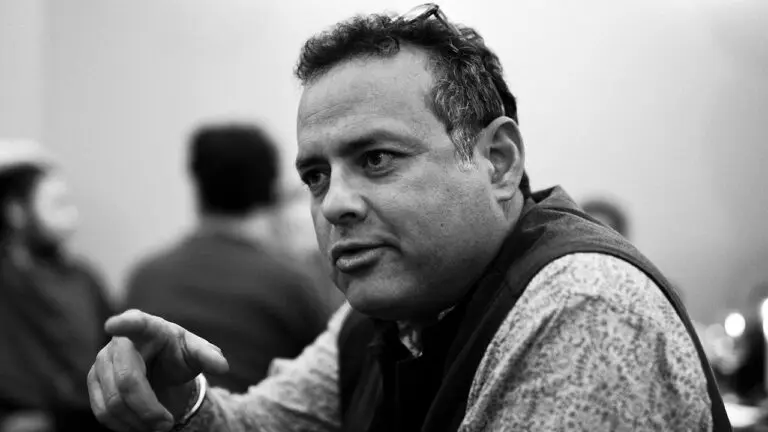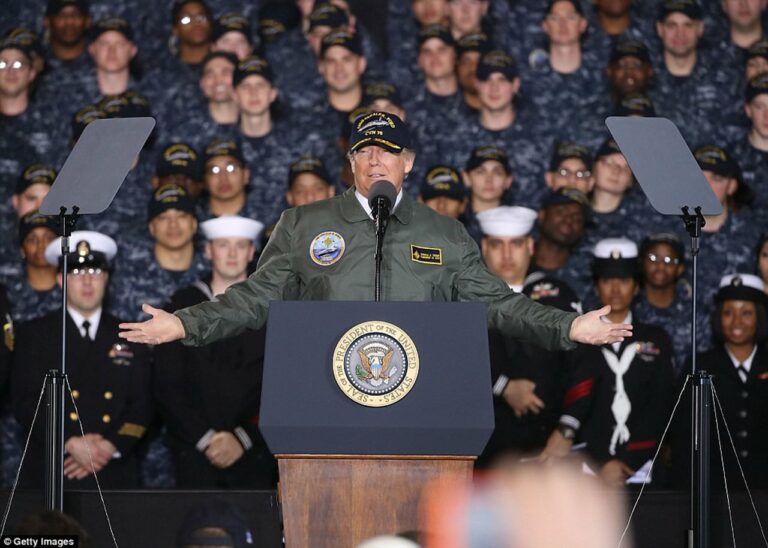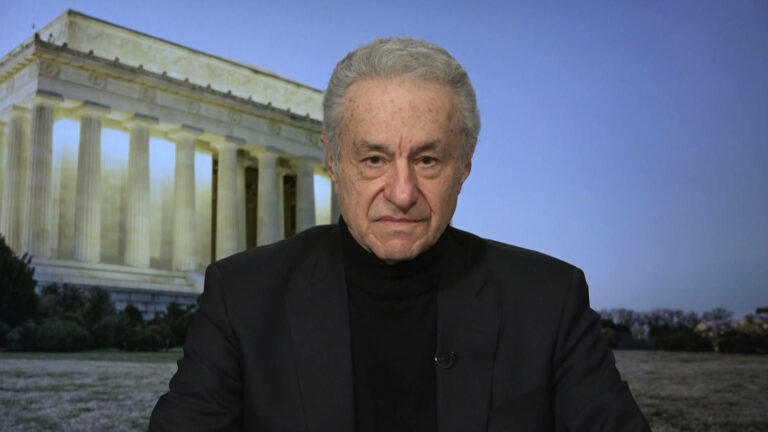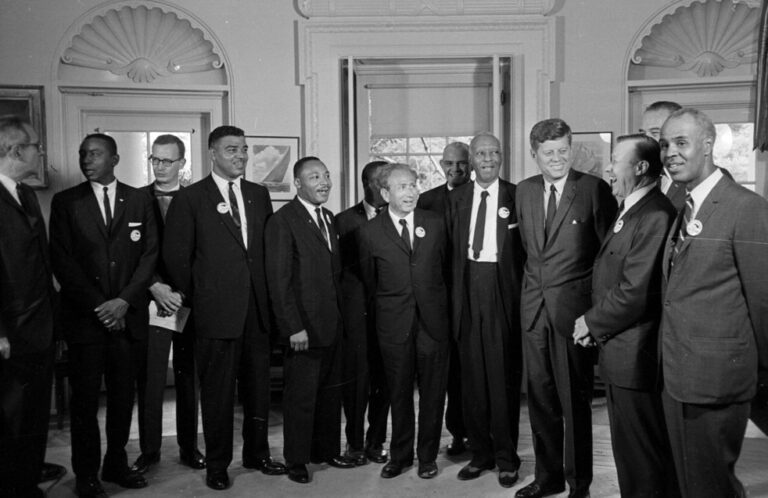This is an episode of Reality Asserts Itself, produced on April 16, 2015. Mr. Kiriakou was the first U.S. government official to confirm that waterboarding was an official policy. He spent 23 months in prison after being convicted of passing classified information to a reporter. He speaks to Paul Jay while still under house arrest.
PAUL JAY, SENIOR EDITOR, TRNN: Welcome to The Real News Network. I’m Paul Jay. And welcome to Reality Asserts Itself. John Kiriakou is in his house waiting for another 40 days before he’s free to walk out the front door. He’s under house arrest after spending 23 months in jail. John Kiriakou was born on August 9, 1964. He’s a former CIA analyst and case officer, a former senior investigator for the Senate Foreign Relations Committee, and a former counterterrorism consultant for ABC News. He was the first U.S. government official to confirm in December 2007 that waterboarding was used to interrogate al-Qaeda prisoners, which he described as torture. On October 22, 2012, Kiriakou pleaded guilty to disclosing classified information about a fellow CIA officer that connected the covert operative to a specific operation. He was the first person to pass classified information to a reporter, although the reporter did not publish the name of the operative. He was sentenced to 30 months in prison on January 25, 2013, and he served his term from February 28, 2013, until 3 February 2015 at a low-security federal correctional facility in Loretto, Pennsylvania. When John joined the CIA in 1990, he was 25 years old. He was a true believer in Americanism–American exceptionalism, as some people call it. And now he’s not. And that’s what this interview’s about. And now John joins us. Thank you very much.
JOHN C. KIRIAKOU, FMR. CIA ANALYST: Thanks for having me.
JAY: So we’re going to do many segments of this interview, because you’ve lived a lot of different lives in the CIA. And, I think, just to establish the ground rules, some of what we’re going to ask John is classified. And I’m going to not–not not ask him: I’m going to ask him whatever we feel like asking him, and then he’s going to figure out if there’s times he has to say, well, I can’t say that, because it’s classified, and then he’ll parse what he can say. But just to let you know, that’s going to happen once in a while–but probably not at the beginning, ’cause I don’t think any of you growing up is classified.
KIRIAKOU: No.
JAY: So, in the beginning we want to talk about how you become Americanized and how much that’s part of your personal identity. So your parents are Greek.
KIRIAKOU: Yes.
JAY: You’re of Greek origin.
KIRIAKOU: Yes.
JAY: And when does your family come to the United States?
KIRIAKOU: My mother’s parents came–I should say, my father’s parents came in February 1931, and my mother’s parents followed three years later. Growing up, to hear my grandfather tell the story, Franklin Roosevelt personally allowed him in the country, got him a job in a steel mill in Canonsburg, Pennsylvania, and by God we were going to be Democrats for the rest of our lives to repay the kindness that Franklin Roosevelt showed. In fact, into the 1970s, until my grandfather’s death in 1978, he had a framed photo of Franklin Roosevelt sitting on top of the television set. So I always grew up with a feeling that I had to repay the kindness that the country had shown my family, that we had a debt to the Democratic Party, specifically to Franklin Roosevelt, and that public service was something to which I should aspire.
JAY: And what did your father and mother do?
KIRIAKOU: My dad was an elementary school principal for 42 years, and my mother was a third grade teacher.
JAY: And they sort of internalized all this FDR and America adoration.
KIRIAKOU: Oh, yes, yeah, very much so. Very much so. Even as a child, I was active politically because my parents were. Even as an eight-year-old, a nine-year-old, I was a–it was even earlier than that, an eight-year-old–I was a volunteer on the McGovern campaign, stuffing envelopes and such. And then, even when I went to college, the first thing I did, literally on my first day in college, was to join the College Democrats.
JAY: And after Roosevelt, we have Truman. Did that loyalty transfer on, president to president? In other words, did you grow up with the narrative that dropping the bomb on Hiroshima and Nagasaki was somehow for the greater good?
KIRIAKOU: I remember a relative of mine saying Truman taught the Japs a thing or two. And I’ll add, too, that there was at least as much love for Harry Truman as there was for Franklin Roosevelt in our family because it was Truman that saved Greece from communism. And my grandparents were very grateful for that.
JAY: And much of Greece was procommunist. So where did your father, coming in the ’30s, where did they get their anticommunism from?
KIRIAKOU: Well, my grandfather was a voracious consumer of news, which was hard to do in the early 1940s. But still he consumed as much news about Greece as he could, whether it was from Life magazine or Time magazine–copies of which I still have, as a matter fact, that mention Greece, or letters to and from relatives in Greece. He really stayed up on what was going on. He was also a member of two Greek-American organizations–the American Hellenic Educational Progressive Association (AHEPA) and GAPA (the Greek American Progressive Association). Both–well, I should say GAPA was really a liberal group, but it supported using Greek, the Greek language, in the home. And AHEPA was more pan-political, but encouraged newly arrived Greeks to assimilate and to become Americans and to speak English in the home. My grandfather was a member of both organizations.
JAY: Because Roosevelt worked with the Soviet Union against Hitler,–
KIRIAKOU: For many years.
JAY: –Roosevelt’s vice president, Wallace, if he had been able to stay on as vice president (he got dumped by the party in favor of Truman), was very much for working with the Soviet Union, was against this kind of beginning of a cold war. So, like, moving from Roosevelt to Truman is not a natural progression in terms of–especially when it comes to Greece, because when you say save Greece from communism, it was by installing dictators in Greece; it was not, like, some democracy [incompr.]
KIRIAKOU: But there was even some disagreement in the home. My grandmother was very conservative. And although she was a Democrat (she became a Democrat when she became a citizen), she was a lifelong royalist when it came to Greek politics.
JAY: But was she from the working class or not?
KIRIAKOU: Oh, yes, very much so, very much so. Her mother died at a young age, and her father believed that his three daughters should have a trade, have an education. My grandmother was the only one of her sisters that went to school and became a teacher and then a translator for the Italian occupation government. She taught Italian soldiers to speak Greek. Her sisters were a dressmaker and–oh, her youngest sister ended up owning a gas station and a butcher shop. So there was always this drive to succeed, even though they were women, that my great-grandfather had instilled.
JAY: So, in the narrative of your families, when it comes to Greece: that the installation of a dictatorship somehow was a good thing, and somehow that’s for democracy.
KIRIAKOU: It depended on the dictatorship. My grandparents were really worried about communism in Greece in the 1940s because the communists were killing a lot of innocent people. They would go into villages to recruit men, and any man that didn’t want to go back up into the mountains to fight for the Greeks was killed. And oftentimes the wives and children were killed as well.
JAY: Well, I’m not going to argue with you about it, but I’ve interviewed Greek communists who fought the Nazis and then fought afterwards, and you get quite a different story.
KIRIAKOU: Sure. Oh, of course you do. And still, these three generations later, you’re still going to get arguments on both sides.
JAY: Yeah. But at any rate, this is part of your formation.
KIRIAKOU: Yeah.
JAY: America fights for the greater good. And as I’ve said on The Real News a few times, it’s sort of like, we do bad things, but for good reasons.
KIRIAKOU: Right. I believed that for many years, decades. And I don’t believe that anymore.
JAY: So when we get to you in the high school–so you’re born in ’64. The Vietnam War’s ending as you kind of start becoming much more conscious of politics.
KIRIAKOU: That’s right.
JAY: As you head into college, what’s your vision of the world and your place in it, what you might be doing?
KIRIAKOU: I considered myself at the time to be what was then called a social democrat–liberal on social issues, economic issues, and then pretty hawkish on foreign policy and defense. I remember there being in retrospect a very funny debate within the College Democrats at GW over the invasion of Grenada: should we issue a statement condemning the invasion of Grenada? These are, like, six college freshmen and sophomores debating whether we should issue a statement like anybody cared. And I remember opposing a statement, because I supported the invasion of Grenada. I don’t recall why, but I did. I felt, I guess, that it showed a robust foreign policy and it showed that we were willing to go out and protect our citizens.
JAY: We needed a win.
KIRIAKOU: Yeah, we needed a win. It had been a while since we had had a win. But all through college I was pretty hawkish on foreign policy issues.
JAY: But you were also–excuse me–in a little bit weird way, very interested in politics and leaders.
KIRIAKOU: Yes.
JAY: Didn’t you at some point write a letter to the Shah, and you got a signed, autographed picture back? What was that all about?
KIRIAKOU: I think I was 14 or 15. I wrote a letter to the Shah of Iran, and I wrote to tell him that I was disgusted by the way our government had treated him, that once we had made a decision, we should have stuck with the decision, and the decision had been to allow him to come to the United States for treatment of his cancer. And when the heat got a little more than the president could handle, the Shah was unceremoniously thrown out and ended up in Panama, and then, later, the Bahamas. So I wrote him a letter saying, it’s terrible the way you were treated. And he actually wrote me a letter back saying, you’re right, it’s terrible the way I’ve been treated; here’s an autographed picture.
JAY: He probably didn’t get many letters like that.
KIRIAKOU: No, I’m sure he didn’t.
JAY: What motivated you?
KIRIAKOU: I don’t know. I was just so interested in foreign affairs that it just seemed like a natural thing to do. I followed the Iran hostage crisis day by day by day, for example. And even though Nightline was on very late at night for a 14-year-old or 15-year-old, I stayed up every single night and watched Ted Koppel on Nightline, because originally Nightline was to give us a daily update of events in Iran.
JAY: Yeah, they’d have a day count, every day, with so many days more and the hostages. Yeah.
KIRIAKOU: That’s right. And so I was just fascinated by it. And I remember telling my father–we were in the car together. And my dad, for whatever reason, always wanted me to become a dentist. And I remember telling him, Dad, I really don’t want to be a dentist. And he said, well, what do you want to do? And I said, I think I want to join the foreign service.
JAY: This is at 14.
KIRIAKOU: I was 14, I guess, at the time. And he said, well, whatever you want to do, just do it well.
JAY: And you wrote Margaret Thatcher.
KIRIAKOU: I did.
JAY: But your choice of leaders are all kind of the–.
KIRIAKOU: They were very conservative.
JAY: Very conservative.
KIRIAKOU: They were very conservative. I got an autographed picture from Ezer Weizman, at the time the defense minister of Israel. These are people that today I wouldn’t dream of writing a letter of support to, but back then I was pretty hawkish.
JAY: Was there anyone influencing you in this direction? Or was it kind of just your own thing?
KIRIAKOU: No, no. It was just–it was my own thing. It was my own interest.
JAY: So you go to college.
KIRIAKOU: Uh-huh.
JAY: And what do you study?
KIRIAKOU: Middle Eastern studies.
JAY: Why?
KIRIAKOU: I don’t know. I was fascinated with the Middle East. A couple of people asked me if I was interested in Hellenic studies. I could have studied at Georgetown or–I mean, there are several different places that you can study Hellenic studies, good schools. And I said, no, I was more interested in the Middle East. And then my dad, in an attempt to get me to stay close to home, said, well, you know, the University of Pittsburgh has a great Eastern European studies program. And I said, I don’t care about Eastern European studies, I don’t care about the Soviet Union. I truly didn’t. I only cared about the Middle East. And there were three schools in the country at the time that had Middle Eastern studies programs: George Washington, Rutgers, and Brigham Young. And George Washington was the easy choice.
JAY: Now, as [you get] into the late ’70s, even the early ’80s, you’re coming to consciousness, you know, political, you’re interested in foreign affairs. How does–is the revelations of what really happened in Vietnam and what a lie–mostly lies that the war was based on–yeah, there’s quotes from senior Johnson officials near the end of the war that if 70 percent of the reason we’re in Vietnam is just to prove how strong we are, it’s now become 100 percent of the reason for being in Vietnam. And you hear that under Nixon, that it became just about proving to the world we can’t lose a war, meaning tens of thousands of lives–I mean, really, millions of lives, including perhaps at least 3 million Vietnamese, Cambodians, and thousands of American soldiers. Does that not in some way start to shake your Americanism?
KIRIAKOU: Not at first. In fact, I haven’t thought about this in years, but I remember an argument that I got into with a friend of mine in the College Democrats over Vietnam, and I said that I had opposed the war–not had opposed–I opposed the war. I thought it was immoral. I thought it was illegal. But if I had been drafted, I would have gone. And he said if he had been drafted, he would have gone to Canada. And we had a real argument about that. And he said to me, how can you oppose a war and then go fight in it? And I said, because my country asked me to. I wouldn’t give that same answer today, but as an 18-year-old that’s what I believed.
JAY: But you did think it was immoral and illegal,–
KIRIAKOU: I did.
JAY: –’cause a lot of the leaders you’re writing to and so on, I mean, they would have not said so.
KIRIAKOU: In fact, I introduced George McGovern when he announced his candidacy for president in September 1984.
JAY: Yeah, I saw that.
KIRIAKOU: And in my speech of introduction, I said that he was one of the few senators to stand up to the illegal and immoral war in Vietnam.
JAY: That seems a little contradictory with all the other positions you were taking and supporting Grenada.
KIRIAKOU: When I was a kid, 19 at the time. Yeah.
JAY: You were still figuring it out.
KIRIAKOU: Still figuring it out. We used to go to the White House at night when you could walk right up to the gate and shout–can I swear on this program?
JAY: Oh, yes, you can.
KIRIAKOU: And shout, “Fuck you, Reagan!” you know, based on something we had seen on the news that night.
JAY: But you supported the invasion of Grenada.
KIRIAKOU: Yeah, I know.
JAY: So what were you–.
KIRIAKOU: I yelled “Fuck you, Reagan” at the fence, and then I’d go back to the College Democrats and say, you know, guys, I’ve got to go with Reagan on this one.
JAY: But still the underlying thing is America can really do no wrong–maybe mistakes, maybe errors.
KIRIAKOU: That’s exactly how I felt. Sure, we made mistakes, certainly, but our hearts were in the right place. I really believed that we were that shining city on a hill. Back then and for many years later, really until September 11, I believed that.
JAY: Well, we’re going to get to that. In the continuation of our series of interview with John, we’re going to ask him how he got recruited into the CIA. Please join us for the next in our series of interviews on Reality Asserts Itself on The Real News Network.
Never miss another story
Subscribe to theAnalysis.news – Newsletter
“John Chris Kiriakou (born August 9, 1964) is an American author, journalist and former intelligence officer. Kiriakou is a columnist with Reader Supported News and co-host of Political Misfits on Sputnik Radio.
He was formerly an analyst and case officer for the Central Intelligence Agency (CIA), senior investigator for the Senate Foreign Relations Committee, counterterrorism and a consultant for ABC News. He was the first U.S. government official to confirm in December 2007 that waterboarding was used to interrogate al-Qaeda prisoners, which he described as torture.
In 2012, Kiriakou became the first CIA officer to be convicted of passing classified information to a reporter. He pleaded guilty and was sentenced to 30 months in prison.”











